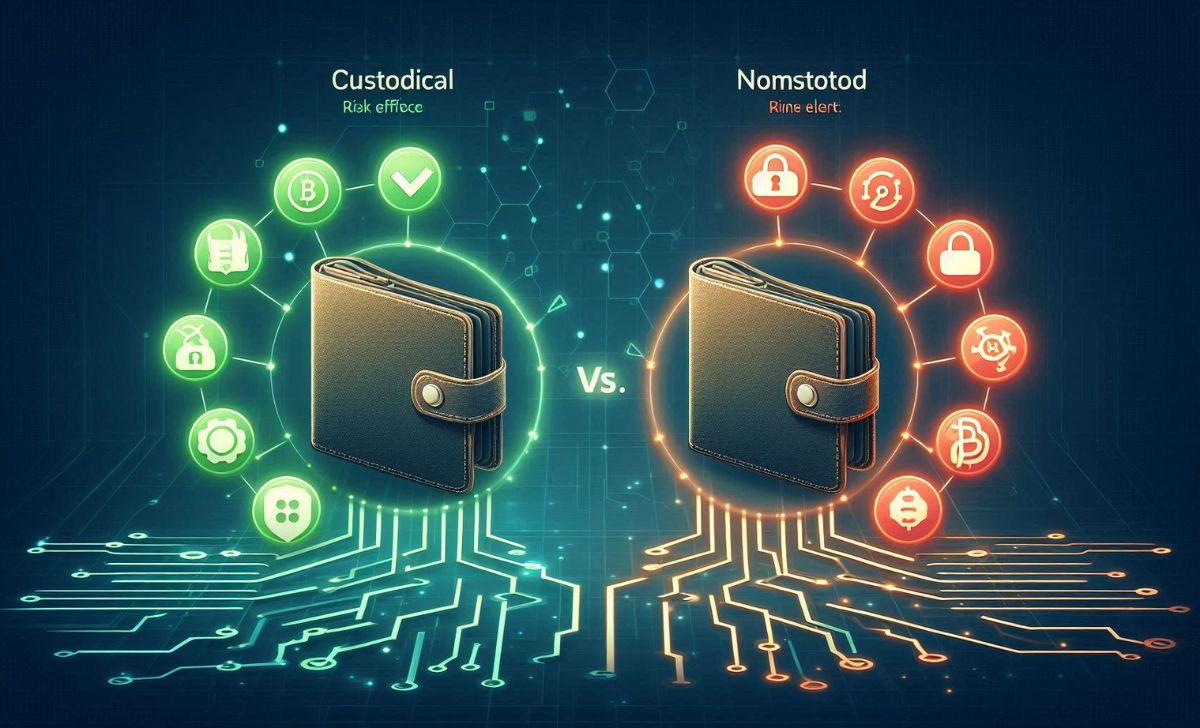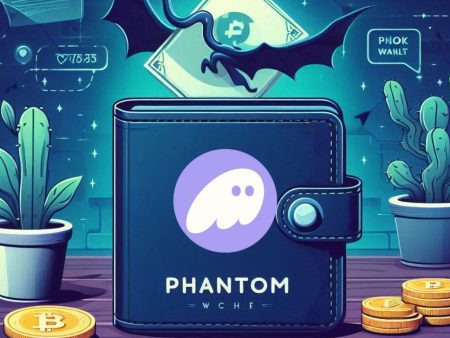Custodial vs non-custodial wallet – two types of crypto wallets that may seem similar but differ greatly in how they function and protect your digital assets. Are you wondering about their key differences, specific pros and cons, and which one best suits your needs?
The following article by TopCoin9 will help you understand them clearly so you can make the safest and most effective choice.
What Is a Custodial Wallet?

A custodial wallet is a type of cryptocurrency wallet where a third party—typically a centralized exchange like Binance, Coinbase, or Kraken—manages your private keys. In simple terms, you’re trusting someone else to keep your crypto safe, much like how banks hold your fiat money.
The biggest advantage of a custodial wallet is ease of use. Since the platform takes care of your keys and backup, it’s ideal for users who are new to crypto or prefer not to manage technical details. This convenience is one reason custodial wallets remain popular, especially among those choosing between a desktop vs mobile crypto wallet depending on accessibility and lifestyle.
Now that you understand how custodial wallets work, let’s take a closer look at how non-custodial wallets differ in philosophy and functionality.
What Is a Non-Custodial Wallet?

A non-custodial wallet, on the other hand, gives you full control of your private keys and funds. Wallets like MetaMask, Trust Wallet, or Ledger hardware wallets fall into this category. This means you, and only you, are responsible for the security of your assets.
Non-custodial wallets align with the core philosophy of decentralization and financial sovereignty, making them a favorite among seasoned crypto users. Many advanced users seeking the best bitcoin wallet often opt for non-custodial options to ensure complete ownership of their assets.
While the definitions give us a foundational understanding, a direct comparison between custodial vs. non-custodial wallet options will reveal which one better suits your personal and financial goals.
Custodial vs Non-Custodial Wallet: Key Comparisons

To make the custodial vs non-custodial wallet comparison clearer, let’s look at a side-by-side breakdown:
| Feature | Custodial Wallet | Non-Custodial Wallet |
| Control | Managed by third party | Full user control |
| Security | Relies on provider | Depends on user |
| Ease of Use | Very user-friendly | Requires technical knowledge |
| Recovery | Easy to recover via provider | Hard to recover if private key is lost |
| Risk | Vulnerable to hacks or bans | Vulnerable to user mistakes |
| Best For | Beginners | Advanced users |
The custodial wallet vs non custodial wallet debate ultimately comes down to how much responsibility you’re willing to take for your crypto. For those specifically managing decentralized applications or staking ETH, selecting the right ethereum wallet can also influence the type of custody they choose.
To dig deeper into that decision, let’s examine the specific pros and cons of each type of wallet to understand what you gain or risk losing with either choice
Pros and Cons of Each Wallet Type

When choosing between a custodial wallet vs non custodial wallet, it’s essential to weigh the benefits and drawbacks of each. Your decision will largely depend on your level of experience, risk tolerance, and what you prioritize convenience or control.
Custodial Wallet
Let’s begin with custodial wallets, the type commonly used by beginners through centralized exchanges. These wallets are designed for convenience, but that convenience comes at a trade-off.
Pros:
- Beginner-Friendly: Most custodial wallets are integrated with crypto exchanges, offering intuitive interfaces that are easy for newcomers to navigate.
- Key Recovery: Since the third-party provider manages your private keys, you can easily recover your account if you forget your password or lose your device.
- Customer Support: If something goes wrong, there’s a support team available to assist you. This safety net can be comforting for many users.
Cons:
- Lack of Full Control: The platform holds your keys, meaning you don’t have complete ownership of your crypto. “Not your keys, not your coins” is a common mantra in the crypto world.
- Security Risks: Centralized platforms can be targets for hackers. If the provider is breached, your assets could be at risk.
- Regulatory Vulnerability: Governments may impose restrictions or freeze accounts, making custodial wallets less resistant to censorship.
Non-Custodial Wallet
Now, let’s turn to non-custodial wallets, the preferred choice for users who value independence and security. With these wallets, you’re in full control, but that also means you take full responsibility.
Pros:
- Complete Ownership: You have full control over your funds and private keys, ensuring true ownership of your crypto assets.
- Better Privacy: Non-custodial wallets usually require minimal personal information, giving users greater anonymity.
- Ideal for DeFi: If you’re exploring decentralized finance (DeFi), a non-custodial wallet is essential for interacting with smart contracts and DApps.
Cons:
- Responsibility on the User: If you lose your private key or seed phrase, there’s no way to recover your funds. This can be intimidating for less tech-savvy users.
- Steeper Learning Curve: Setting up and using a non-custodial wallet may require more technical knowledge and awareness of security practices.
- No Customer Support: You are your own support team. Mistakes like sending crypto to the wrong address can’t be reversed.
Understanding these trade-offs helps you better match the wallet to your skill level and risk appetite. Still unsure which to choose? The next section will guide you based on your user profile and preferences.
Which Wallet Should You Choose?
If you’re new to the crypto space or prioritize convenience and ease of use, a custodial wallet may be the better starting point. It offers a familiar, “bank-like” experience with added support. However, if you value privacy, control, and are comfortable with technical responsibility, then a non-custodial wallet is likely your best bet.
It’s also worth noting the concept of custodial vs non-custodial parent is being explored in blockchain education and parental control systems, where “custodial” refers to guided systems and “non-custodial” to self-managed learning tools. This growing use of the terms reinforces the importance of control and responsibility in digital ecosystems.
Whichever option you go with, using a crypto wallet that aligns with your habits and goals is crucial. From daily transactions to long-term holding, the right wallet can make a significant difference in your crypto journey.
In the debate of custodial vs non-custodial wallet, the right choice ultimately depends on your personal preferences, goals, and experience with crypto. Whether you value convenience or complete control, understanding both wallet types is key to protecting your assets. For more insights and expert tips on managing your crypto securely, visit TopCoin9 today.

As a certified blockchain security expert with over 8 years in cybersecurity, James Anderson specializes in auditing smart contracts and identifying vulnerabilities in DeFi protocols. His expertise ensures that TopCoin9 delivers reliable insights on blockchain security and risk management.
Email: [email protected]












